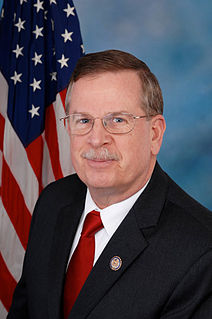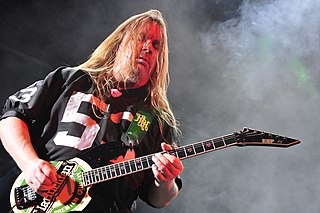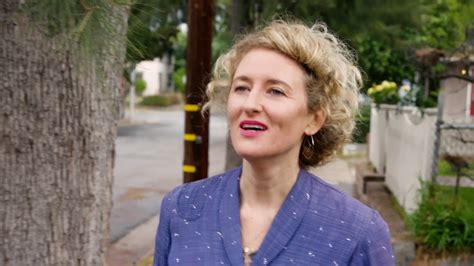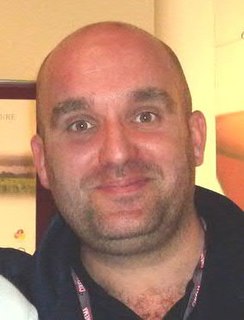A Quote by Rich Nugent
It's about ethical. It's about leading from the front, and it's kind of hard to look at people and say hey, listen, we need to cut back or it may cost you more money - if you're not willing to do the same thing.
Related Quotes
Money is very difficult to think about. So, we think about money as the opportunity cost of money. So, we at some point went to a Toyota dealership and we asked people, what will you not be able to do in the future if you bought this Toyota? Now, you would expect people to have an answer. But people were kind of shocked by the question. They never thought about it before. So, the most we got was people said, "Well, if I can't buy this Toyota, if I buy this Toyota, I can't buy a Honda." What is this thing? What is this value of price? Very hard to think about it.
We would like you to reach the place where you're not willing to listen to people criticize one another... where you take no satisfaction from somebody being wrong... where it matters to you so much that you feel good, that you are only willing to think positive things about people... you are only willing to look for positive aspects; you are only willing to look for solutions, and you are not willing to beat the drum of all of the problems of the world.
People say to me, Hey, Bill, the war made us feel better about ourselves. Really? What kind of people are these with such low self-esteem that they need a war to feel better about themselves? May I suggest, instead of a war to feel better about yourself, perhaps... sit-ups? Maybe a fruit cup? Eight glasses of water a day?
It may be hard to remember how difficult it was for people to talk about HIV/AIDS back in the 1980's and because of both Ronald Reagan and Nancy Reagan - in particular Mrs Reagan - we started a national conversation, when before nobody would talk about it, nobody wanted to do anything about it. Something that I really appreciate was her very effective but low-key advocacy, but it penetrated the public conscience, and people began to say "hey we have to do something about this too.
I would say plotting is the most difficult thing for me. Characterization is only hard because sometimes I feel I get so interested in it that I want to talk too much about the characters and that slows the story down. So I say, "Hey, people want to find out what's going to happen next, they don't want to listen to you spout off about this or that person." But I think even the bad guy deserves to tell his side of the story.
With people in corsets you need, an hour and a half in you have to give somebody something, you have to have those trays with a little bit of fruit going around or something because you get that blood sugar [dropping] thing, so it's curious because that's in your mind at the same time as you're about to say, 'I think it's about the humanity and the depth of feeling and we need to feel [Cinderella] soul expand and by the way, more cheese for the people in the back.'
When I said that something was going to cost a certain amount of money, I actually knew what I was talking about. The biggest problem that we were having on the financing front was people with lots of money saying "you need more money to make this film [Moon]," and us saying "no this is the first feature film we want to do it at a budget where we sort of prove ourselves at the starting end of making feature films; we can do this for $5 million." That is where the convincing part between me and Stuart came, we had to convince people with money that we could do it for that budget.
Interesting thing that is happening in American society is that people are starting to talk about money. I don't know how you feel about this, but for a long time, nobody was talking about money. It was a secret. And it's kind of very interesting because we do lots of stuff to portray to people about how much money we have, the clothes we wear and the cars we have and the house - they all kind of depict to other people, signal how much money we make, but we don't talk about it specifically.
Talking about freedom, about ethical issues, about responsibilities as well as convenience, is asking people to think about things they might prefer to ignore, such as whether their conduct is ethical. This can trigger discomfort, and some people may simply close their minds to it. It does not follow that we ought to stop talking about these things.
The money for my movies mostly come from talented and generous friends willing to work for almost nothing. As a producer, my job is to get as many people to give me things for free as I could. And most people are kind, and they know how hard this kind of thing is, so they are willing to help how they can, and reduce their fees how they can.
In London, there must be thousands of people in the business of making films, whereas in Nottingham or Sheffield, you're probably talking about below a hundred. So there aren't thousands of people scrapping for the same money and for the same jobs. I went out in Nottingham the other night and there's a really beautiful community of people who are really supportive. It's not this back-stabbing thing, high-rent, high-cost, high-tension. Up here we are independent filmmakers and there's a lovely sense of camaraderie.
I think for guys - you're going to have some people that are willing to be on the front line. You think of guys like Malcolm Jenkins, Demario Davis - guys that are willing to speak up and say, 'Hey, there's a problem, and I want to help change, and I want to be a vessel to keep this thing moving and see change.'
































